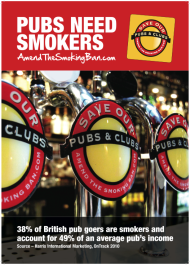For 15 years I edited the monthly Mensa Magazine. No, I wasn't a member. I was a freelance journalist and I got the job partly through my friendship with Madsen Pirie who was on the board of directors.
The cover of the September 1998 issue featured the young and very talented pianist Elena Konstantinou who was performing at the Mensa Music Festival at the Royal Academy of Music. Other performers - all members - included professional cellist Oliver Gledhill and Andy Leek, formerly with Dexy's Midnight Runners.
Less prominent was the headline "Exclusive! Derek Draper's Guide to Political Intelligence".
Like me, Draper wasn't a member of Mensa but in 1998 he was a leading spin doctor, a former aide to Peter Mandelson, and I couldn't think of anyone better to write 1200 words on the subject.
It was a thoughtful, well-written piece and in view of recent events I thought you might like to read some excerpts. Reading it again I am particularly struck by the final paragraph. But judge for yourself:
It was John Stuart Mill who first labelled the Conservative Party the "stupid party". He meant it as an insult but it is the least intellectual who seem to prosper best in politics. The much more wounding put down is to be told you're "too clever by half". One can be bright but not too bright ...
The Tories have always been more withering in their contempt for intelligence … Prior to the Thatcherite takeover [the] party prided itself on being an ideas free zone. Whilst the socialists worried themselves about Gramsci, Marx, Crosland or Laski, the Tories got on with governing the country.
Only with the accession of Thatcher did intellectuals turn the party into an ideological venture. Managing decline was no longer a policy option. But whilst Thatcher built an intellectual coterie during the 1970s, as soon as she gained power the brains were spurned and the old machine politicians took over …
Blair has similarly turned to trusted party men now he has the keys to No 10 … Welcome Jack “The Enforcer” Cunningham, a man who learnt his trade amongst the shop stewards of Newcastle GMB; Peter Mandelson, a strategist with a keen intelligence but not an intellectual; and John Prescott. Only Gordon Brown (with his PhD and desperation to get to grips with neo-endogenous growth theory) could remotely be described as intellectual ...
Being too clever by half is, of course, only a handicap in British politics. In France, Italy and Germany politicians regularly display their intellectual depth with turgid books on the foundations on their political philosophy ...
In Britain the ambitious politico settles for a newspaper picture of himself drinking local ale in the nearest saloon bar. Politicians like the Foreign Secretary Robin Cook, the Lord Chancellor Derry Irvine and even William Hague are widely viewed with suspicion for their clever-clever air.
The only way, as George Bush found during the 1988 US Presidential campaign, is to dumb down, lose the hauteur and go for the soundbite. For the cruel truth is that modern electorates like the impression of ordinary men doing extraordinary jobs; not extraordinary men who deign to perform ordinary jobs.
Ultimately it is instinct, common sense and, above all, luck which services the successful politician more usefully than any degree of grey matter. Tony Blair’s instinctive response on the morning after Princess Diana’s death earned him a deeper and more lasting support than any clever policy wheeze ever could.
Intellectuals have their function – but it is usually limited and far from the centre of power. Politics is, in a now hackneyed phrase, about hard choices. The intellectual usually sees too many alternatives, paradoxes and complications to act with the decision and brutality required.
Brutality? I wonder if Damian McBride read this?!
PS. In the same issue Madsen and I created a "political quotient" for each member of the then Labour Cabinet. We did this by estimating and giving marks for the political and intellectual ability of each minister. Tony Blair, for example, got 8 out of 10 for political ability, and 5 out of 10 for his intellectual prowess. Brown, in contrast, got 6 for political ability and 6 for intellect. To achieve a PQ rating we added these figures together and multiplied the result by five to give a mark out of 100. Simple!
It was just a bit of fun and the winner was ... Peter Mandelson with a PQ of 90. Other scores included Stephen Byers (85), Baroness Jay (85), Jack Straw (75), David Blunkett (70), Tony Blair (65), Alastair Darling (65), Gordon Brown (60) and John Prescott (45). Bottom of the class were Clare Short, Nick Brown and Chris Smith with PQs of 30.
See: Mandelson the 'brains' behind Labour
 Monday, May 31, 2010
Monday, May 31, 2010 
 Simon Clark
Simon Clark
 Articles
Articles 










